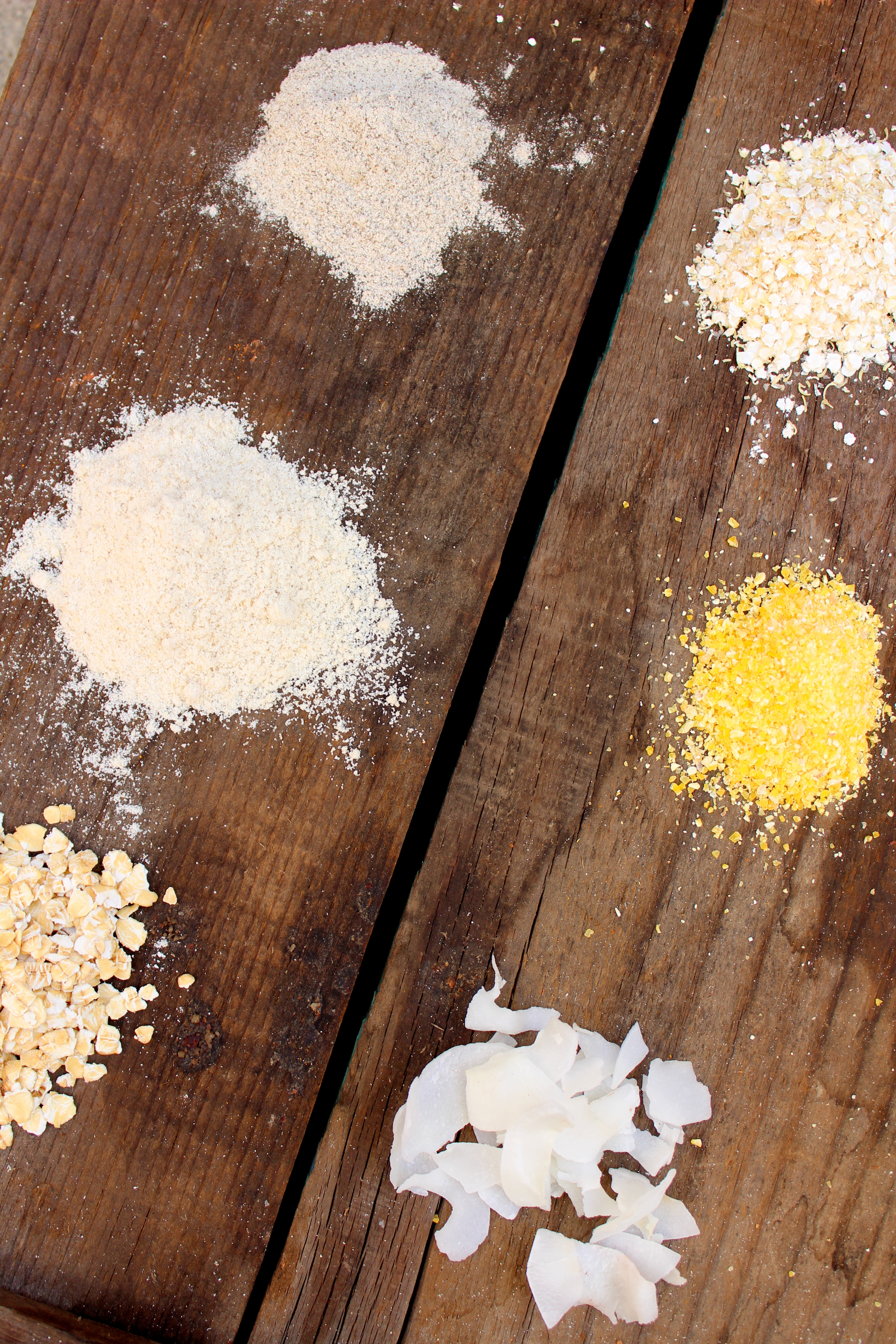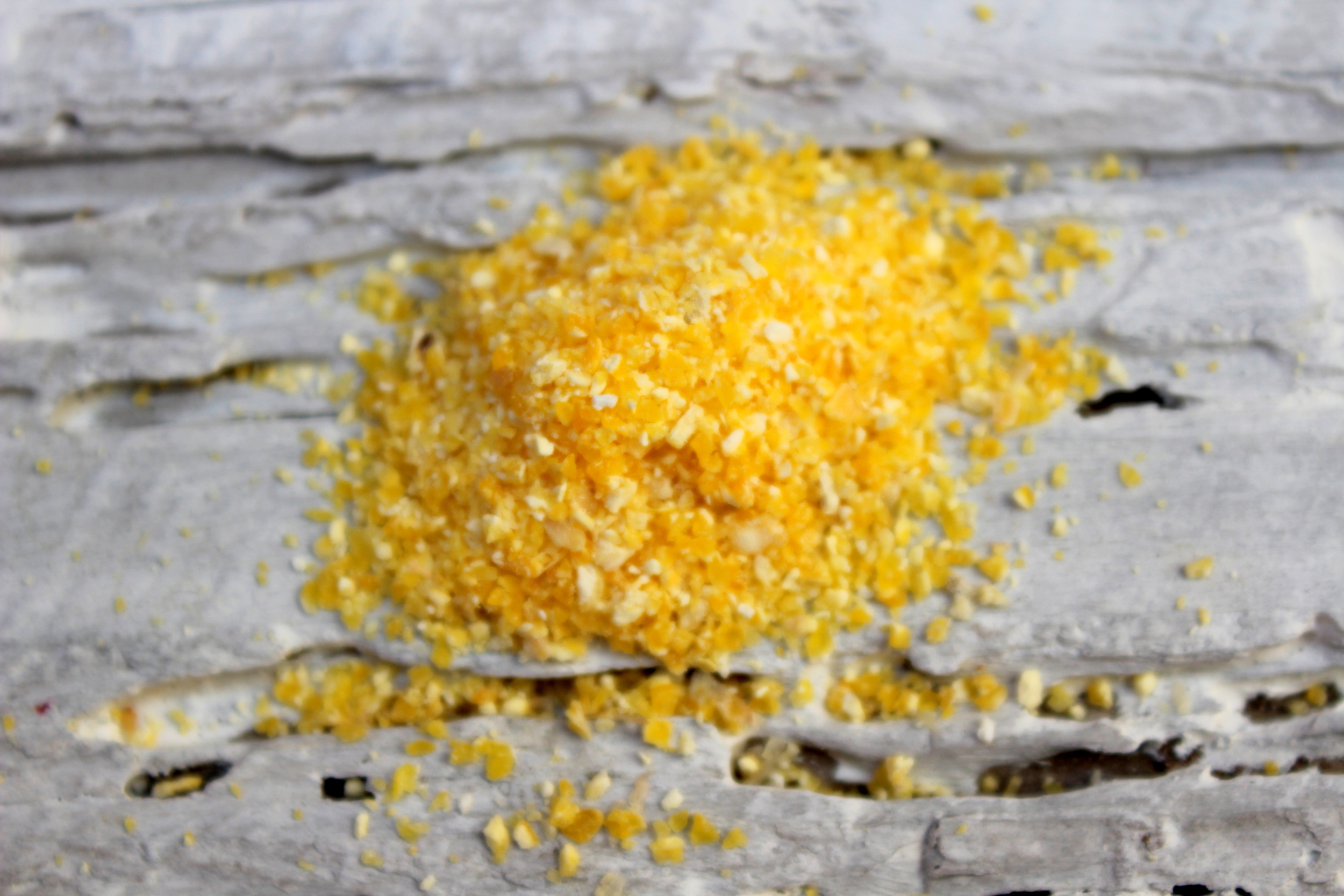Flours, starches and gums
You'll notice that most of the recipes I create are gluten-free. I have a gluten sensitivity and it's been a few years we avoid gluten in our family meals. We did not reduce it for medical reasons (celiac disease), but because we just felt better without it and mostly because we wanted to diversify our grains. Now that I am getting better with gluten-free baking, we discovered so many tasty and nutritious flours and gluten-free recipes that we don't miss it anymore ! I try to use the most nutritious flours and I avoid creating recipes that combines only white rice flour and starches or gluten-free all purpose commercial flour. They work well in baking, but unfortunately, on a daily basis, it's the same as eating refined grains. I don't buy commercial gluten-free products (except bread or pasta once in a while) and I prefer to do my baking from scratch. I mainly use nut and oat flours for cookies, pie crust and energy balls, since they have a great taste and nutritional value. I like garbanzo and quinoa flour for their high protein content and buckwheat flour in crepes or other recipes that can take the strong flavor or this flour. I also use sprouted spelt flour, which is not gluten-free (see details below).
We do enjoy eating outside or with our families, so you could still see us bite in a piece of regular "baguette", fresh bread or a croissant here and there ! For us, it's all about having a balance and diversified diet !
Almond flour (or meal)
My favorite for pancakes, cookies, tartlet and pie crust, etc...
Baking powder and baking soda
Choose Aluminium-free baking powder whenever you need a leavening agent in muffins, cookies, cakes etc.
Brown rice flour
Often referred as the flour alternative for gluten-free baking. Better if mixed with other flours and starches.
Buckwheat flour
This pseudocereal has a strong and distinctive taste so it doesn't work in all recipes. Every 2 or 3 days, Noah asks for rolled buckwheat crepes filled with nut butter and fruits (and maple syrup of course!). A family classic !
Coconut flakes
Sometimes, I like to add coconut flakes in my granola, as a garnish on a chocolate avocado pudding or in cookies.
Cornstarch
Fine corn powder used for thickening. Try to choose the organic non-GMO brands. I use it to make vegan gravy or in my no-butter lemon custard.
Cornmeal (polenta)
Great for cornbread and polenta (Italy's mashed potatoes !).
Garbanzo flour (chickpea flour)
I'm pretty new to garbanzo flour and I can say it's now my favorite for salty gluten-free cooking. We love garbanzo pancakes (I use them in my Huevos Rancheros version).
Millet
Good "couscous" substitute (as well as quinoa), I use it also as a main ingredient in my Christmas pies (mixed with oats ans spices).
Nut flour
Hazelnut flour, almond flour, macadamia flour, pecans flour... Almost any nut can make a good flour for pie and tart crust and cookies !
Oat flour
They don't contain gluten, but are often cross-contaminated with it. Since I'm only sensitive to gluten and not allergic, I buy regular oats (quick and rolled), but you can buy gluten-free oats in natural stores. I grind the rolled oats in my Vitamix and make my own flour to add in cookies, cakes and crust.
Psyllium flakes or husks
Natural alternative for Xantham gum or guar gum (binding agents) in gluten-free baking. Also, I use it in my cashew yogurt recipe to give creaminess to the recipe. Psyllium husks is a good source of fiber. Therefore, they are great for the intestinal health, especially if you have digestive problems.
Quinoa flakes and flour
Depending on the brand I buy, I find that the bitterness varies. Works better if mixed with other flours, so that the strong taste doesn't interfere with the other ingredients. I like to add quinoa flakes to cookies and pancakes.
Sorghum flour
It's hard to find a gluten-free flour that does not have a strong taste. Whenever I need a neutral taste flour, that's the one I choose.
Sprouted spelt flour
Sprouted spelt flour is the only flour that is NOT "gluten-free" that I have in my pantry and use once in a while. You can buy it in natural food stores (like Whole Foods Market) or online. It's pricy, but when this ancient grain is sprouted, it increases its nutrient content and digestibility. It's a 1:1 substitute for regular wheat flour, so when I find it hard to do a "gluten-free" version of a recipe, I will choose this flour instead.
Tapioca starch
To mix with other gluten-free flours in cookies, crust, breads and cakes.


